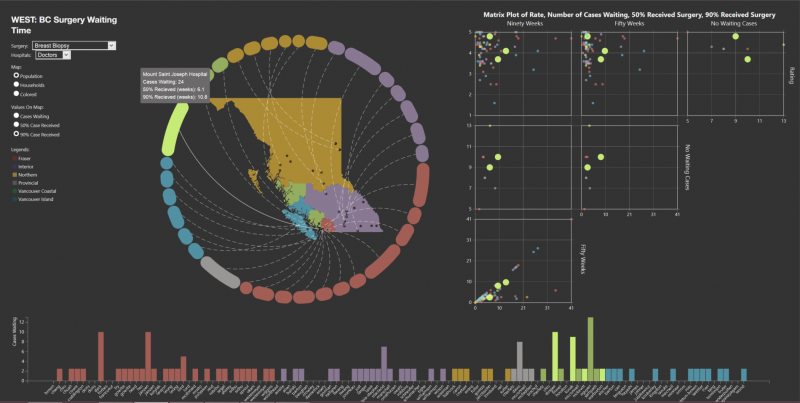Courses
CMPT 363
User Interface Design
School of Computing Science, Simon Fraser University
This course introduces students to the art and science of designing usable, useful and enjoyable human-computer interfaces, with an emphasis on user-centered design techniques. By the end of the course, students will be familiar with different user-centered design approaches, understanding user needs, prototyping methods, and interface evaluation techniques. Students will gain valuable knowledge and experience by working on a hands-on design project.
Course OutlineCMPT 767
Visualization
School of Computing Science, Simon Fraser University
Advanced topics in data visualization. Topics covered may include principles of data representation, data presentation, data interaction, data physicalization, data and visualization literacy, data visualization and diversity, open data, and public and personal data visualization.
Course OutlineCMPT 863
Advanced Topics in Human-Computer Interaction
School of Computing Science, Simon Fraser University
Advanced topics in human-computer interaction (HCI) will be introduced for better understanding end users, solving a variety of problems in the design of technology, and inventing novel forms of interaction. Focus will be on current trends in interdisciplinary HCI research, design of interactive systems, and user-centered evaluation techniques. Students will work on individual assignments and a semester-long team-based research project. Classes will be held in the form of lectures, seminars, paper reading, and open discussions.
Course OutlineCMPT 985
Special Topics In Graphics, HCI, Visualization, Vision, Multimedia
School of Computing Science, Simon Fraser University
This seminar-based course will introduce the interdisciplinary field of human-computer interaction (HCI). Principles and methods in HCI can be used to better understand end users, solve a variety of problems in the design of technology, and invent novel forms of interaction. Focus will be on current trends in HCI research, design of interactive systems, and user-centered evaluation techniques. Students will work on a semester-long research project related to HCI. Classes will be held in the form of seminars, paper reading, and open discussions. Course material will be extracted from the current literature. Prerequisites: None
Course Outline



